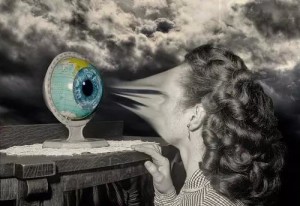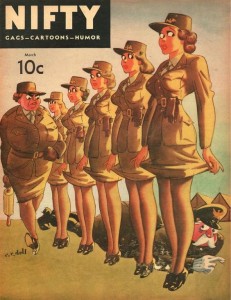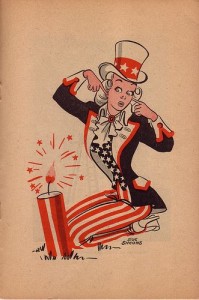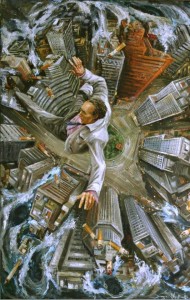Tower of Babel, Part 1
 Point of Entry
Point of Entry
I notice I’m not the only astrologer who’s been feeling reluctant to write about the presidential election. What is it about partaking in this great national conversation that feels so prickly? Besides my Moon in Sagittarius?
I think it’s because we smell the danger, to mind and spirit, of getting dragged into the shit storm, spattered with the hysteria, mired in the mendacity.
There are many different levels on which we could, conceivably, approach the subject of the election. But if we haven’t made a decision about which tack we’re taking, we’re snookered into the media’s tack, by default. Which is degrading.
Staying untainted
Not that we couldn’t, in theory, enter the media’s orgy of nonsense and survive. Saturday Night Live manages to do it. But that’s because their approach is clearly defined and consistent. Their job requires that they stand aside from the absurdity and mock it. By refusing to identify with the official narrative, they remain untainted. If we’re not a parody show, it’s trickier.
Assumptions
If we unwittingly enter the conversation on the standard level, that of a hideously bloated horse race, we’ll notice right away the pull of the many mass assumptions that dwell silently under the discourse.
If we want to join in, but don’t share these assumptions, we need to clarify this to ourselves and others, right off the bat. Otherwise it’s Tower-of-Babel time.
 This noticing and clarifying is the first step in allowing something meaningful to happen. It’s personally empowering as well as socially useful.
This noticing and clarifying is the first step in allowing something meaningful to happen. It’s personally empowering as well as socially useful.
Patriots all?
We might first tackle the concept of patriotism, a concept at which candidates and citizens have been genuflecting nonstop. There are flag pins, there are red-white-and-blue outfits. And there are repetitions in every speech of the country’s name, as if the word “America” conferred moral integrity and divine protection.
Patriotism has become linked to socioeconomic class, in this country — sort of like paying taxes, which hotel magnate Leona Helmsly once described as being “only for the little people.” These nationalistic occupations have retained meaning only for the non-power-player demographic. For the international ruling class, by contrast, it’s pretty clear that in the global economy of 2016 they have no intrinsic loyalty to any one country; only to their own fortunes.
Class divide
And it’s not as if the 99% don’t know this. Working-class Americans know all about outsourcing and tax  shelters. They know all about the dual passports and Tuscan villas of the super-rich. It is odd that the link between wealth and lack-of-patriotism doesn’t get more press, given how much attention income disparity is given these days.
shelters. They know all about the dual passports and Tuscan villas of the super-rich. It is odd that the link between wealth and lack-of-patriotism doesn’t get more press, given how much attention income disparity is given these days.
Indeed, the luxurious lifestyles of the cosmopolitan rich are flaunted, for entertainment purposes, in magazine features and reality shows. The fact that these are targeted to a non-wealthy audience seems to show, more than anything else, how secure the ruling class is, in its knowledge that the poor will not begrudge them their unwarranted benefits.
It’s an irony that reached its apex when Trump’s tax delinquency scandal, leaked on 10/2/16, was pretty much blown off as a non-issue by his non-wealthy base. Wouldn’t you think that tax-dodging by a billionaire would be read as something of a fuck-you to patriotism? But apparently, for many America-Firsters it only served to reinforce their desire to be as foxy as the master.
 The injustices of income disparity have failed to undercut the myth of universal patriotism, as have the daunting new environmental realities that are moving us all towards a whole-planet perspective.
The injustices of income disparity have failed to undercut the myth of universal patriotism, as have the daunting new environmental realities that are moving us all towards a whole-planet perspective.
A new patriotism
This failure is due to the fact that nationalistic sentiment is not a function of the mind but of the heart, retaining for many Americans a quasi-spiritual meaning in a dis-ensouled world.
Consider the unflagging popularity of WWII as a heroic war (“Inglorious Basterds,” “Saving Private Ryan”), which expresses a collective nostalgia for a time when all partook of this feeling together. It could happen again. But it would take replacing the old version of patriotism, in all its warm-and-fuzzy meaninglessness, with a version that involved genuine caring about the state of the country and the world.
For this to happen we’d have to take a little closer look at the concept of love-of-country. If you asked any of its adherents to define it, most would answer either with unintelligible vagueness, or with verbatim quotes from some pundit. (A similar example is the secular piety “Send us your prayers,” a universally  unobjectionable bit of media-speak. It is equally serviceable as a response to a public figure who contracts a disease, a town that just had a mass shooting, and Brad and Angelina’s divorce.)
unobjectionable bit of media-speak. It is equally serviceable as a response to a public figure who contracts a disease, a town that just had a mass shooting, and Brad and Angelina’s divorce.)
King of the World
The phrase “Make America Great Again” works because its users get away with not explaining what they mean by it. The assumption is that everyone already knows, and agrees.
On the surface, the slogan is crisp and clear. But like all good battle cries, it’s in code, amorphous enough to contain the projections of anybody who wants to infer something from it. Its tone of defiance gives it away. “Make America Great Again” implies that the USA should grab back every crumb of entitled power that might have been inadvertently shared, over the years, with other countries.
 If we were to peek underneath the heavy boulder of American patriotism, we’d probably find the fervent conviction that any demotion in this country’s King of the World status, no matter how slight and no matter how globally beneficial, would be an unspeakable calamity.
If we were to peek underneath the heavy boulder of American patriotism, we’d probably find the fervent conviction that any demotion in this country’s King of the World status, no matter how slight and no matter how globally beneficial, would be an unspeakable calamity.
I think people realize this assumption is puerile and irrational, so they don’t examine it. And they resist others examining it. For an American to consider, even hypothetically, a shift in this country’s hyper-power status savors to many of treason.
Communal embrace
It isn’t hard to see the appeal of the “political” (1) narrative. It’s compelling, in a car-wreck kind of way, to follow the screaming red HuffPo headlines, to keep up with the Trump gaffe from five minutes ago, to watch the campaign apologists break a sweat.
We get to feel at-one with a national blood sport, where everyone speaks the same language, and everyone knows the rules: Each citizen is for one of two candidates, and against the other, wearing the passion of partisanship like a badge of character, as a fan wears team colors at a football game.
But if the conversation remains at this level, we’ll notice after a couple of paragraphs that the air has been sucked out of the room. A panic may set in, to find a way out of the clutches of mass assumptions, away from the stupefaction of group-think, beyond the clichés of the Dem-GOP high-stakes slugfest.
Our goal should be to find a new point of entry into this thing.
To be continued…
Note
1 In quotes, because I believe speakers should resist having our language trivialized, stymied and denatured. A perfectly useful word like “politics” should not be permanently corrupted by its association with the dystopian national charade going on right now.
Images:
Spear fight: Yuri Shwedoff
Eyeball collage: Franz Falckenhaus
